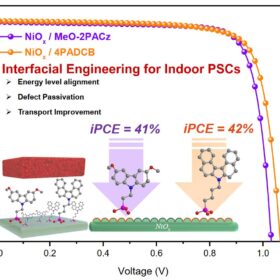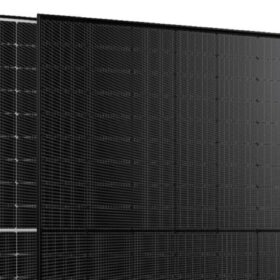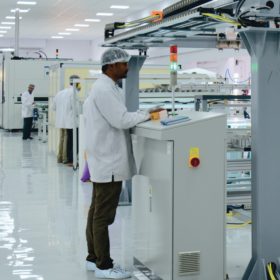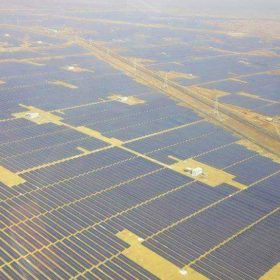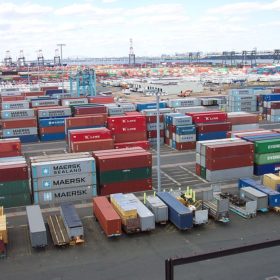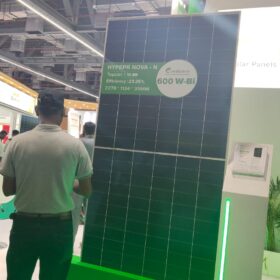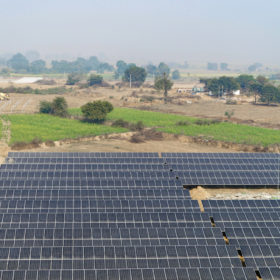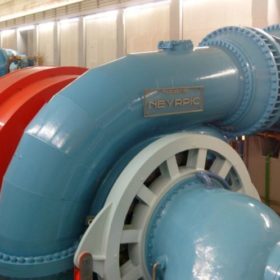Indoor perovskite solar cell based on self-assembled monolayers achieves 42% efficiency
Researchers in Taiwan have developed an efficient carrier transport and defect passivation approach at the nickel oxide/perovskite interface in perovskite solar cells, enabling devices with 42% efficiency under indoor lighting conditions, and over 20% in simulated sunlight.
Foxconn mulling battery energy storage unit in India
Taiwanese electronics manufacturer Foxconn (Hon Hai Technology Group), which is working on lithium ferro phosphate (LFP) and solidstate batteries, is exploring production of electric vehicles and battery energy storage systems in India.
Winaico presents bifacial 435W TOPCon module with 22.30% efficiency
Taiwanese manufacturer Winaico said its newest bifacial, n-type, glass-glass TOPCon compact modules are available in a 435 W aluminum-framed version, and a 430 W full-black version. The module efficiency is up to 22.30%.
WoodMac says renewable electricity generation in India could be 56% cheaper than coal-fired by 2030
The analyst said currently, India and Australia are the only Asia Pacific countries where renewable power already costs lower than new-build coal. It predicted the trend would spread to the entire region by the end of the decade, while India and Australia would see renewables becoming further cheaper than coal.
SM Auto partners Taiwan’s Gotech on EV battery packs and BMS
Pune-based SM Auto Engineering, in technical collaboration with Taiwan based Gotech Energy, will set up a state-of-the-art plant in Pune to design, develop and manufacture advanced battery packs and battery management systems for electric vehicles.
India’s solar cell and module exports grow 157% in eight months
Following a dip in the last fiscal year, the value of cell exports saw a massive surge to an estimated Rs133,000 lakh from April to November. Exports to the U.S. tripled during the eight-month period as shipments to Turkey and Belgium rebounded to become the next two biggest export markets.
AC Energy and UPC Solar form new JV for Asia Pacific
The joint venture company targets the construction of over 1 GW portfolio in the next few years, with an initial focus on India, South Korea and Taiwan.
India’s renewable power generation cost the lowest in Asia Pacific
The cost of solar power generation in India has fallen to half the level seen in many other markets in the region due to extensive solar resource, market scale and competition.
“Let’s compete on quality and innovation”: Vikram Solar CFO
With India losing major solar markets to stiffer competition from cheaper products, it’s high time to change the game by playing on quality and innovation—according to Vikram Solar Chief Financial Officer Rajendra Kumar Parakh, who spoke to pv magazine on the challenge of shrinking markets before Indian solar manufacturers.
Big dip in import and export of solar modules and cells
A flying start to the year saw huge volumes of solar cells and modules imported to India but the scale and value of such products fell over the remainder of 2018 and export figures mirrored that trend.
